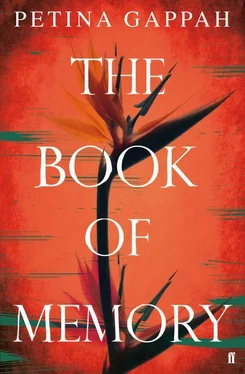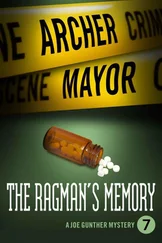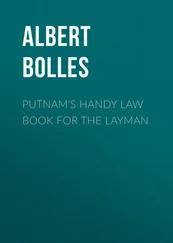‘That is what it is called.’
‘Amnesty International is an organisation,’ said Monalisa.
‘Yes, it is an organisation that makes sure prisoners get out of prisons after elections. What, you think you know everything just because you said yes baas, no baas to white people?’
‘What do white people have to do with anything? I already told you that Amnesty International is an organisation.’
‘Pwamnesty, pwamnesty,’ said Synodia. ‘Pwoganisation, pwoganisation.’ She had snuck up unnoticed. Monalisa and Jimmy were too busy arguing to see her appear, or to see our frantic attempts to warn them. ‘What do you know about amnesties? Will you stop talking and get on with your food? As for you,’ she said to Monalisa, ‘let’s see just how hard you worked for your white people. Pwite people, pwite people.’
Whatever revolution is raging outside has — in here, at least — clearly been postponed.
*
This time, coming to Summer Madness felt like returning home. Lloyd’s gentle kindness to me was just as it had ever been. We settled back into our old rhythms, as though I had never been away, as though those two weeks had never been, and as though I had never betrayed him.
We had long conversations about the elections that had been delayed yet again. He feared that the country was on a precipice. I watched the news, stunned at the mix of bare-faced lies and superstition presented as fact. A convicted murderer who had been pardoned was declared a national hero. A house was blown up by witchcraft in Chitungwiza. A goblin was stealing women’s underwear in Gokwe. The adverts were all in celebration of the ruling party: I gazed in amused disbelief at the most unlikely figures ever to grace a football field, three big-bottomed women from the city’s oldest and most chaotic township, dancing on a football field in ruling party ‘team colours’. They shook their thighs of thunder as they sang in praise of the ruling party. They danced to the beat of their own oppression.
In the first two weeks of my visit, I took to driving around and walking about town. Outside Bay’s department store, two little boys spoke threateningly to the naked breasts of the semi-clad statues of Artemis and Aphrodite. ‘We will drink all your milk. We will drink every last drop.’
I began rereading the books that I had read as a child, capturing the feelings of wonder I had known then. I had no definite plans; I did not know how long I wanted to stay. I had no job anywhere. There was really nothing for me to stay for, but there did not seem anything to go back to, either. I would find my way, I thought, I would find something.
Lloyd suggested that I consider teaching at the university. I chose to volunteer at the Archives instead, while I decided what to do. The place had its old pull on me still, and comfortable as I now was in my skin, I did not think I could bear to stand before the unblinking gaze of staring students.
I had few people to visit. I saw my old friend Mercy, who told me how infinitely she had been blessed, how the Lord had moved in her life and made everything that she touched prosper. Sandy had moved to Cape Town to live with a sister. And Liz Warrender was dead.
Lloyd had emailed me about Liz’s death the year before. I passed her old house many times, now bursting with Rebecca’s relatives and other squatters.
I even went back to the Convent to see Sister Mary Gabriel, but found that she had been moved to a school in Masvingo. It was then that I realised that, without Liz, and Sandy, I really had no one left.
In my wild moments of loneliness, I thought of driving to Mufakose. But that wound, though partially healed, still throbbed enough for me to want to leave it undisturbed. I stayed away.
Ian and Alexandra were no longer on their farm in Chipinge. It had been one of the first farms to be invaded. Ian was dying at Island Hospice. He did not know me at all when I saw him. He had had a stroke that left him paralysed on one side and oozing constant tears from one eye.
Alexandra seemed even older than Ian. She told me about the stand-off at the farm, what the leader of the invaders had said, what she had said to him, what he had said back to her, and how Lloyd had called ‘a connection of his’, one of the ministers he had been with in the camps at Chimoio, who had said, if they packed their clothes and things, he would make sure that they were not harmed.
She told me about what had happened to the farms of people I did not know, or who, if I had ever known them, I had completely forgotten, like Keith and Suzy Granger, who had left with nothing at all, just what they had on; not even proper shoes. ‘I promise you,’ she said, ‘They are now in Ni gee ria.’
The Grahams had fled the farms, shots ringing in their wake; their dogs were killed as they tried to defend them. The Chisholms of Chimanimani had tried to defend themselves, but both father and son had been killed. It was their faces that had been splashed across the international news.
The invasions were the talk of Umwinsidale. My feelings were ambivalent. I had lived long enough among them to understand and feel pity for their losses, but I found it infuriating that they spoke as though there was no context to this, as though this is something that had just happened, with no history to it.
They spoke as if the Pioneer Column had never invaded a land that was not theirs, as if land had not been stolen, as if this had not been a crisis long in the making.
I don’t want you to think that I am in any way defending the chaos of the way the farms were parcelled out, or the greed with which the top people took farms for themselves. From what Lloyd told me, Alexandra and Ian’s farm had gone to the second wife of an army general, who had also taken a farm in addition to the one that went to his first wife and two children.
The whole thing had been reduced to the simple matter of blackness versus whiteness. White people stole the land. Black people took farms and ruined them. Black people took control and ran things down. White people stole.
Alexandra believed that it was not inexperience that made black people incapable of being farmers, but something intrinsic to their identity. For her, the ability to farm had nothing to do with access to loans and cheap labour, but had everything to do with the genetic accident of whether you were born white or black. ‘Africans can only farm communally, you see; they can’t do the big commercial farming. They are used to only little pieces of land. It is a miracle they grow anything at all.’
Lloyd said, ‘What about all those historical advantages that the commercial farms enjoyed? The tilted and unjust land-tenure system, the bank loans and the guaranteed markets?’
Alexandra changed tack and said, ‘It’s the wrong people at the top.’ She looked directly at me and said, ‘You always choose the wrong leaders.’
‘And Ian Smith,’ I said. ‘What was he, the white Mandela?’
Alexandra got up abruptly and left the room. Lloyd made a face at me, smiled, and when she came back, steered the conversation to other, safer waters.
There had been two robberies in the area, with the most serious being at the Collinses’ on Hazlemere. Alexandra was convinced that the squatters from the camp that had sprawled out on Liz Warrender’s property were behind it. In one of the robberies, the white couple that lived at the targeted house had been shot and their bodies thrown in the swimming pool. ‘Inside jobs,’ Alexandra said, nodding in the direction of the squatter camp. The police had taken some of the squatters away, had beaten them senseless, but no one had confessed, she said. ‘Mind you don’t pass that lot at night,’ she added. ‘And make sure you load the gun.’
Читать дальше












